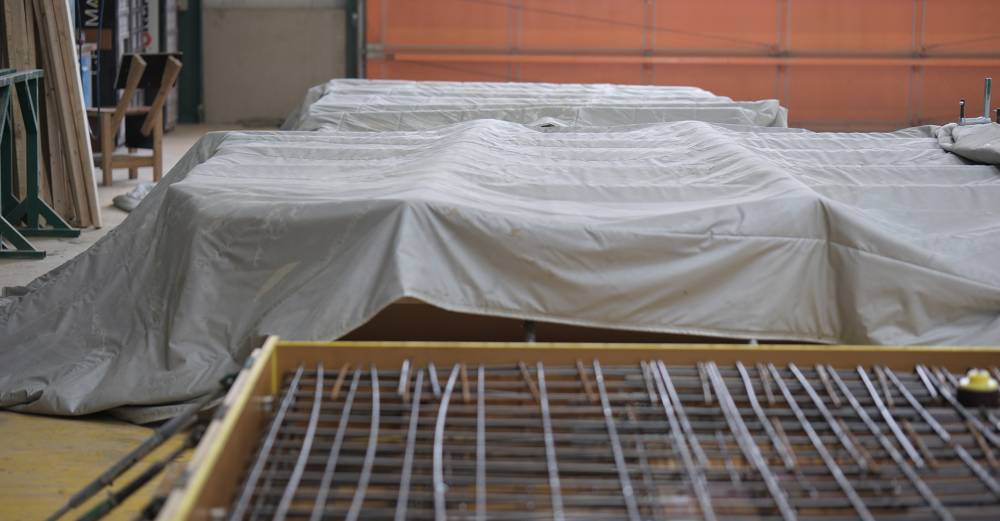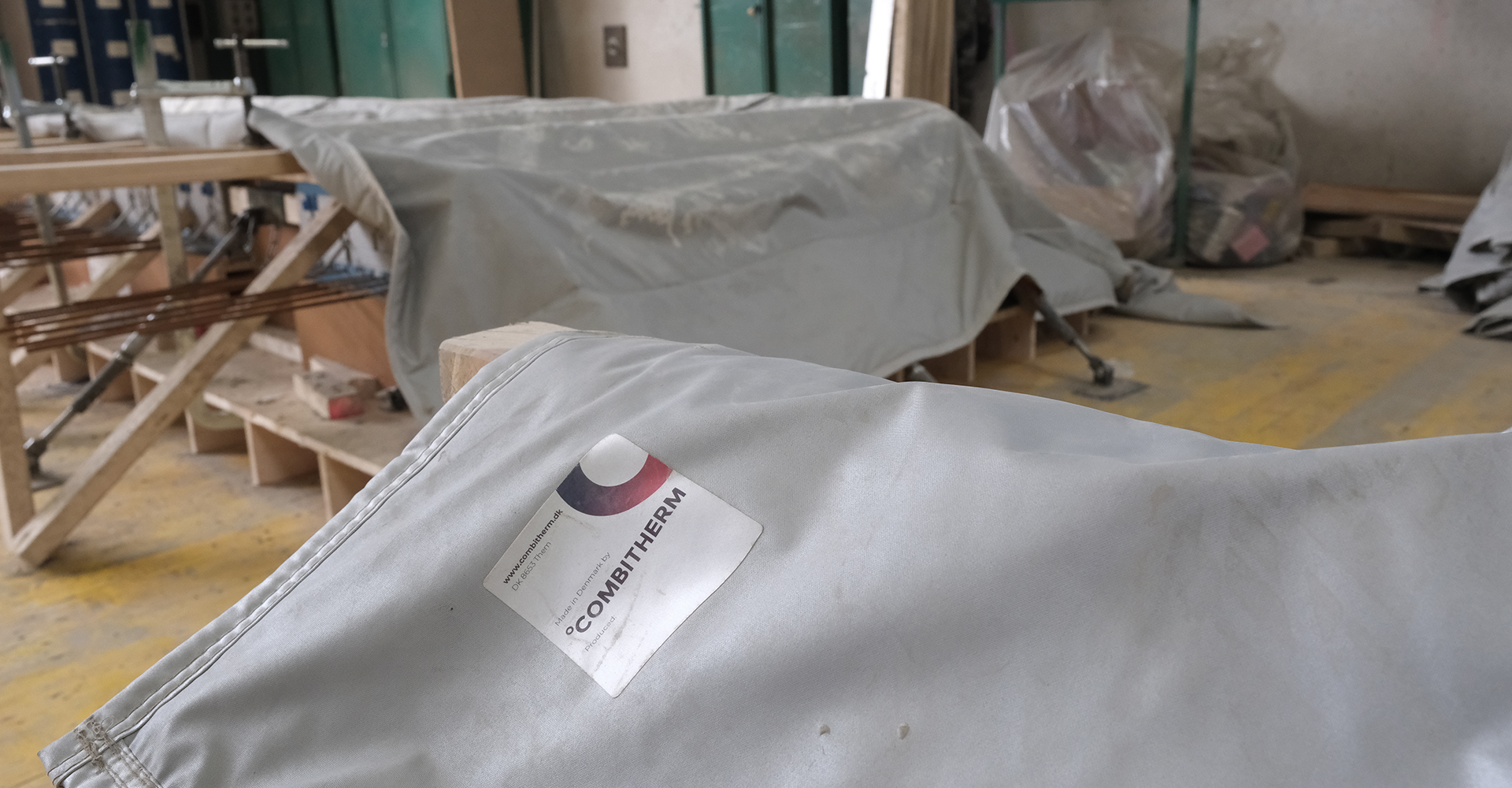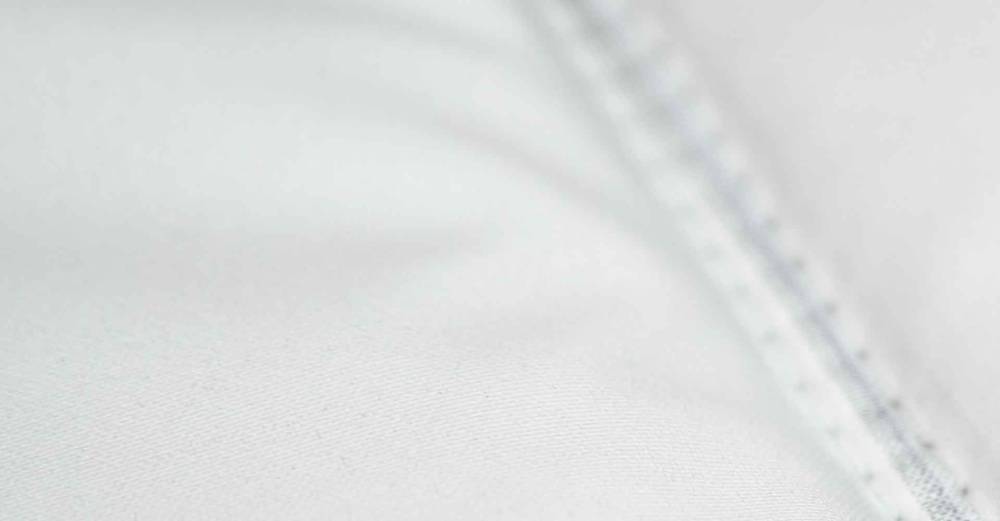Saving energy with thermal concrete duvets

For more than 60 years, Weber Betonwerk GmbH has stood for innovative products and comprehensive service at all levels. The company offer a wide range of high-quality precast concrete elements for residential and commercial construction. Whether single-family homes, agricultural or industrial buildings, commercial buildings, supermarkets, or garages: Weber Betonwerk GmbH is a competent and flexible partner for almost all areas of modern construction.
Rising energy costs require new initiatives
To counteract the increasing energy costs, the concrete plant Weber Betonwerk in Ippesheim, Germany has thought of new ways in the production of balconies and stairs. When producing approx. 50 balconies and 30 stairs daily, the concrete elements are now covered with thermal concrete duvets from the Danish company Combitherm to optimise the curing process and keep excess heat in the component.
"Last year, we were looking for new ways to reduce our heating costs in the production hall. When we became aware of the thermal concrete duvets from Combitherm, we made initial tests with a total of three mats to cover the finished concrete balcony elements," explains Michael Klaus, Weber Betonwerk.
"The first tests were so satisfactory that we ordered 50 thermal concrete duvets in different sizes during the winter, to be able to cover our daily production completely," adds Kevin Knobeloch, Quality Manager, Weber Betonwerk.
Thermal covers must ensure a uniform quality
Since the end of the year, the entire daily production of the balconies, approx. 50 pieces, has been covered with the thermal concrete duvets.
The approximately 10 mm thick insulation of the thermal mats is made of Polywool, a material made from 78% recycled PET bottles. The different formats and sizes are manufactured according to individual customer requirements.
”We are now using the concrete duvets for all balconies, in order to ensure a uniform quality on the underside of the balcony and to avoid quality differences in the surface structure of the individual balconies,“ says Kevin Knobeloch. ”Also, there are no problems with cracks caused be shrinkage.“ We work with lightly compacting concretes of strength class C45/55 and higher, which develop a higher heat of hydration. The thermal concrete duvets help to keep the heat in the components.
Optimised curing process and savings
In order not to place the thermal concrete duvets directly on the fresh concrete, Weber employees use wooden spacers that are placed over the concrete balconies.
"We clearly see the advantages of using thermal concrete duvets, as opposed to PE foil," says Knobeloch. "The heat for the curing process is kept more stable and condensate is not a problem."
"Before using the thermal mats, we had to spend a lot of energy to heat up the production hall. However, the period that has passed since we started using the concrete duvets is still too short for us to be able to put figures on the potential savings, but it will definitely have a positive effect," Michael Klaus sums up.
"To what extent it will be possible to take the elements out of the molds earlier, must also be investigated," adds Knobeloch. "But for this, we will need a phase with constant outside temperatures."
Read more about the advantages of concrete duvets

Photo at the top: The concrete elements at Weber Betonwerk are covered with thermal concrete duvets to save energy and optimise the curing process. Photo: www.beton.news
Photo at the bottom: Thermal concrete duvets from Combitherm ensure a uniform quality. Photo: www.beton.news


Get the case study
Here you can download the case study about concrete duvets at Weber Betonwerk.
Would you like to know more about concrete duvets?
Please complete this form and we will then contact you.

